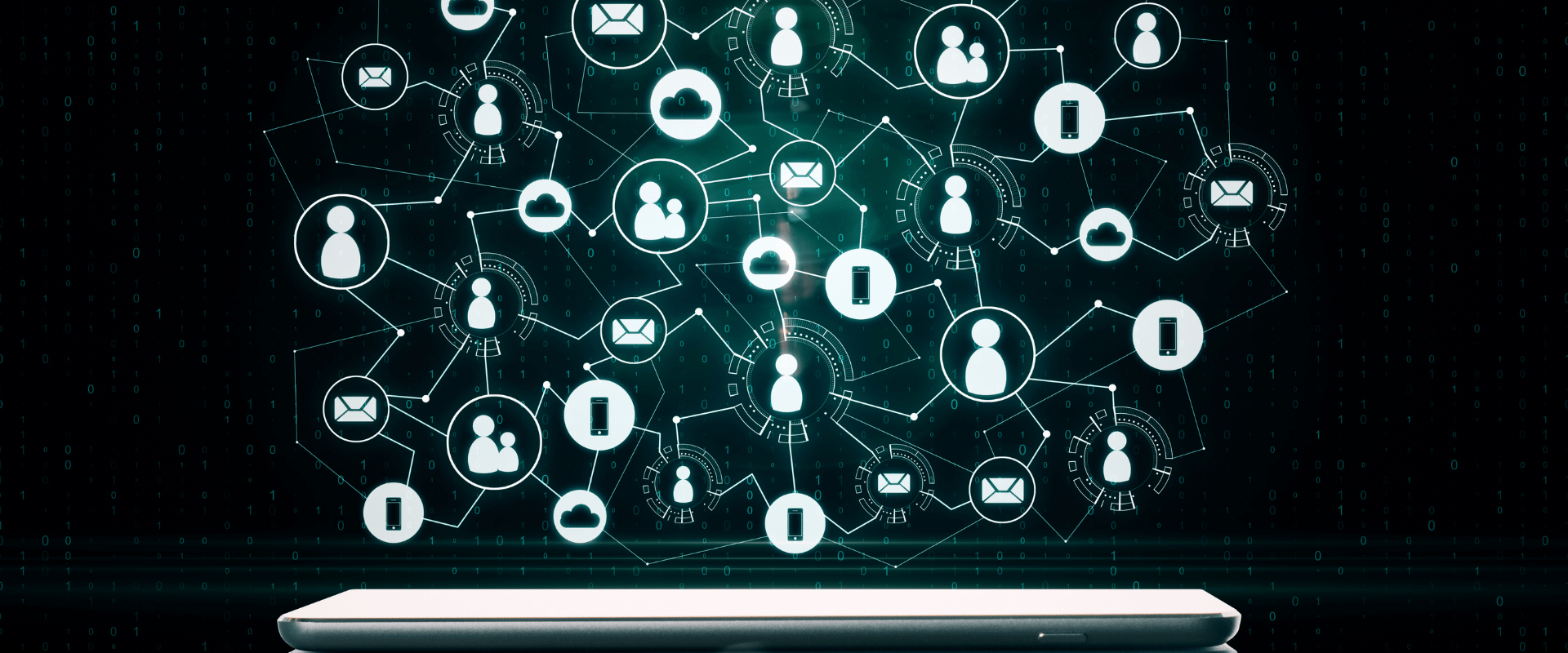The landscape of HR and payroll technology is rapidly evolving, driven by advances in automation, artificial intelligence, and data analytics tools. Businesses must keep up with these technological trends to make their operations more efficient and improve their employees’ experiences.
Automation and Efficiency
Automation revolutionizes HR and payroll processes by reducing manual tasks and minimizing errors. Automated systems handle everything from time tracking and payroll calculations to benefits administration and compliance reporting. These systems save time, increase accuracy and consistency, and empower HR management, making them feel more valued and integral to the business as they can focus on strategic initiatives.
In the future, we will see even greater integration of automation in HR and payroll functions. Advanced algorithms will predict payroll needs, adjust calculations based on real-time data, and automatically update records. This shift towards hyper-automation will make HR processes more efficient and responsive to changes, ultimately enhancing overall productivity.
For example, automated payroll systems can now automatically calculate taxes, deductions, and overtime pay, eliminating the need for manual calculations and reducing the risk of human error. Automation can also handle complex compliance requirements, such as ensuring payroll processes adhere to local, state, and federal regulations. This approach saves time and reduces the risk of costly compliance errors.
Furthermore, automation can streamline the onboarding process for new employees by automatically generating and distributing necessary documents, setting up payroll accounts, and scheduling training sessions. HR leaders can then focus on more strategic tasks like employee engagement and retention.
Artificial Intelligence and Machine Learning
Artificial intelligence (AI) and machine learning (ML) are poised to influence the evolution of HR and payroll technology significantly. AI-powered tools can sift through extensive data sets to spot patterns, forecast trends, and offer valuable insights. For example, AI can help HR and payroll professionals identify potential employee engagement or performance issues, allowing for proactive interventions.
AI and ML can optimize processes by predicting payroll expenses, identifying discrepancies, and automating complex payroll calculations. These technologies also enhance decision-making by providing data-driven recommendations, instilling a sense of security and control in decision-makers, and helping businesses manage their workforce more effectively.
In addition to optimizing payroll data processes, AI can improve talent acquisition and management. For instance, AI-powered recruitment tools can analyze resumes and match candidates with job openings based on their skills and experience, reducing the time and effort required to find suitable candidates. AI can also help HR professionals develop personalized employee training and development plans based on their performance data and career goals.
Furthermore, AI-driven chatbots can handle routine HR inquiries, such as answering questions about benefits, leave policies, and payroll, freeing HR staff to focus on more complex tasks. These chatbots can provide instant, accurate responses to employees, improving their experience and satisfaction.
Ask How We Can Make Payroll & HR Easier for You
Enhanced Employee Experience
The future of HR technology focuses on enhancing the employee experience. Self-service portals and mobile apps allow employees to access their information, request time off, and view pay stubs anytime, anywhere. These tools empower employees, giving them greater control over their personal data and work-related tasks.
Additionally, the prevalence of AI-driven chatbots and virtual assistants will increase, offering instant support for employee questions and lightening the load on HR departments. Personalized learning and development platforms will offer tailored training programs, helping employees grow and advance in their careers.
For instance, self-service portals allow employees to update their personal information, view their pay history, and submit requests for leave or benefits without contacting HR. Self-service tools improve the employee experience and reduce the administrative burden on HR staff, increasing job satisfaction and engagement.
Mobile apps can also give employees real-time access to their payroll information, allowing them to view their pay stubs, check their leave balances, and track their hours worked. This access can help employees stay informed and engaged, improving their overall job satisfaction.
Personalized learning and development platforms can offer customized training programs based on employees’ skills, performance, and career goals. These platforms can provide employees the tools and resources to develop their skills and advance in their careers, increasing engagement and retention.
Data Security and Compliance
Data security and compliance remain top priorities as HR and payroll systems become more sophisticated. Upcoming technologies will integrate sophisticated encryption techniques, multiple layers of authentication, and ongoing surveillance to safeguard confidential data. These measures will help businesses comply with regulations such as
GDPR and CCPA so that employee data is secure and the audience feels reassured about their data’s safety.
Advancements in compliance tools are on the horizon, with features that will automatically update to reflect changes in labor laws and tax regulations. This evolution aims to minimize the possibility of non-compliance and the penalties that come with it, making sure businesses remain aligned with legal mandates.
For example, modern payroll systems can automatically update tax rates and deductions based on the latest regulations so that payroll processes are always compliant. These systems can also generate compliance reports, allowing businesses to easily track and demonstrate compliance with various laws and regulations.
Advanced data encryption techniques can also protect sensitive employee information from unauthorized access. Multi-factor authentication and continuous monitoring can enhance security so only authorized personnel can access sensitive data. These measures protect employee information and help businesses build trust with their workforce.
Integration and Connectivity
The future of payroll and HR technology lies in seamless integration and connectivity. Unified platforms connect HR, payroll, benefits, and talent management systems, providing a holistic view of employee data. This integration enables better data analysis, improved decision-making, and streamlined workflows.
APIs and cloud-based solutions will facilitate data sharing between different systems, allowing businesses to customize their technology stack to meet specific needs. This integrated strategy will enhance efficiency and adaptability, allowing human resources teams to swiftly adjust to evolving business landscapes.
For instance, integrated HR and cloud-based payroll software can provide a single source of truth for employee data, reducing the risk of data inconsistencies and errors. These systems can also automate data transfers between different modules, such as updating payroll records when employee benefits or job roles change. Integrated payroll and HR systems improve accuracy and reduce administrative workload.
Cloud-based solutions can offer additional benefits, such as remote access to HR and payroll systems, scalability to support business growth, and enhanced disaster recovery capabilities. By leveraging cloud technology, businesses can ensure that their HR and payroll processes are resilient, flexible, and future-proof.
Industry Insights and Trends
Staying informed about the latest HR industry insights and payroll trends is essential to staying ahead in the rapidly evolving HCM technology landscape. For more insights into the future of HR and payroll technology, check out our video interview with SourceForge and read our blog about the interview.
Additionally, keeping up with the latest payroll tech trends for 2024 is crucial. Key trends to watch include the increasing globalization of payroll, the rise of generative AI (GenAI) in HR applications, and the growing demand for on-demand pay solutions. These trends highlight the ongoing transformation of payroll technology and underscore the importance of adopting innovative solutions to stay competitive.
- Globalization of Payroll: As businesses expand their operations globally, managing payroll across multiple countries becomes increasingly complex. Payroll systems must support various currencies, languages, and compliance requirements to secure accurate and timely payments to international employees.
- Generative AI (GenAI): GenAI technologies can create new content, such as personalized training materials or automated responses to employee inquiries, enhancing the efficiency and effectiveness of HR processes. These technologies can also analyze large volumes of data to identify trends and make predictive recommendations, helping businesses make more informed decisions.
- On-Demand Pay: The growing demand for flexible pay options, such as on-demand pay, allows employees to access their earned wages before the traditional payday. This trend reflects the changing expectations of the modern workforce and highlights the need for payroll systems to offer flexible and convenient payment solutions.
How APS Can Support the Future of HR and Payroll
APS is committed to staying at the forefront of HR and payroll technology. Our comprehensive solutions integrate automation, AI, and data security advancements to provide businesses with efficient, reliable, and compliant systems. With APS, you can simplify human resources operations, improve employee experience, and keep pace with evolving tech trends. APS technology offers scalability, aligning well with businesses across various sizes and stages of growth.
Our solutions help businesses automate routine tasks, such as payroll calculations and compliance reporting, allowing HR professionals to focus on strategic initiatives. We also offer AI-powered tools that provide valuable insights into workforce trends and performance, helping businesses make data-driven decisions. Additionally, our systems incorporate advanced security measures to protect sensitive employee data and secure compliance with the latest regulations.
Unlocking the Future of HR and Payroll Technology: Embrace Innovation for Business Success
Automation, AI, enhanced employee experiences, and robust data security mark the future of HR and payroll technology. By embracing these innovations, businesses can optimize their HR processes, improve decision-making, and foster a more engaged and productive workforce. APS supports your journey into the future of HR and payroll technology, providing the tools and expertise you need to succeed. For more information on how APS can assist, contact us today.
Adopting cutting-edge HR and payroll technologies allows businesses to stay competitive in an increasingly digital and data-driven world. Embracing these innovations improves operational efficiency and enhances the employee experience, leading to higher engagement and retention. As the HR and payroll landscape evolves, staying informed about industry trends and leveraging advanced solutions will be vital to achieving long-term success.





